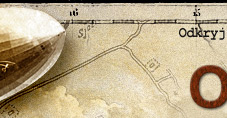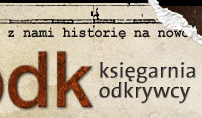

Encyclopedia of the Ghetto
Księży MłynRok wydania: 2017
ISBN: 978-83-937512-2-8
Oprawa: twarda
Ilość stron: 320
Wymiary: 170 x 245
Dostępność: Dostępna za 3-5 dni
55.60 zł
Publikacja w języku angielskim.
Ludzie getta, połączeni zewnętrznym przymusem, rozwinęli własną strukturę, język i terminologię nieporównywalną z żadną inną społecznością na świecie.
W dziejach ludzkości słowa i język - dawno temu dowiodły tego tezy - były bardziej wiarygodnymi świadkami i źródłami prawdy niż inne, materialne pamiątki. Obecna encyklopedia nie twierdzi, że jest wyczerpująca i jednoznacznie definiuje terminy. Uważa jednak, że zbliża się do tego celu. [...] Oskar Rosenfeld, 1 grudnia 1943.
The communal life of a group of people brought together by external coercion with no deliberate intention of forming a common destiny gradually took forms over time that were only possible on the territory of the ghetto. Everyday life requires certain norms of working and existing. It developed its own structure, its language, its terminology. No community anywhere in the world could be comparable to that of the ghetto. [...]
A collection of these linguistic and lexical resources forms part of the ghetto s cultural history. In a later period of history, one to which research on the ghetto will belong, such a collection, such an encyclopedia, will be able to provide elucidation where a bare description of the conditions does not suffice. In the history of humankind, words and language - scholarship long ago proved this thesis - have been more credible witnesses and sources of truth than other, material memorials.
The present encyclopedia makes no claim to be exhaustive and an unambiguous definition of terms. But it believes it has come close to this targeted goal. [...]
Oskar Rosenfeld, December 1, 1943.
Ludzie getta, połączeni zewnętrznym przymusem, rozwinęli własną strukturę, język i terminologię nieporównywalną z żadną inną społecznością na świecie.
W dziejach ludzkości słowa i język - dawno temu dowiodły tego tezy - były bardziej wiarygodnymi świadkami i źródłami prawdy niż inne, materialne pamiątki. Obecna encyklopedia nie twierdzi, że jest wyczerpująca i jednoznacznie definiuje terminy. Uważa jednak, że zbliża się do tego celu. [...] Oskar Rosenfeld, 1 grudnia 1943.
The communal life of a group of people brought together by external coercion with no deliberate intention of forming a common destiny gradually took forms over time that were only possible on the territory of the ghetto. Everyday life requires certain norms of working and existing. It developed its own structure, its language, its terminology. No community anywhere in the world could be comparable to that of the ghetto. [...]
A collection of these linguistic and lexical resources forms part of the ghetto s cultural history. In a later period of history, one to which research on the ghetto will belong, such a collection, such an encyclopedia, will be able to provide elucidation where a bare description of the conditions does not suffice. In the history of humankind, words and language - scholarship long ago proved this thesis - have been more credible witnesses and sources of truth than other, material memorials.
The present encyclopedia makes no claim to be exhaustive and an unambiguous definition of terms. But it believes it has come close to this targeted goal. [...]
Oskar Rosenfeld, December 1, 1943.
Klienci, którzy oglądali tą książkę oglądali także:
• Egzekucje publiczne w Radomiu w 1942 roku
• Encyklopedia białych plam
• Vertriebene 1939. Ausstellung
• Englebert z rwandyjskich wzgórz
• Ewakuacja, likwidacja i wyzwolenie KL Auschwitz
• Ewolucja światła
• Emilia. Meble, muzeum, modernizm
• Encyklopedia Białych Plam t. IV Ce-De
• Pięćdziesiąt melonów
• Encyklopedia getta
• Encyklopedia białych plam
• Vertriebene 1939. Ausstellung
• Englebert z rwandyjskich wzgórz
• Ewakuacja, likwidacja i wyzwolenie KL Auschwitz
• Ewolucja światła
• Emilia. Meble, muzeum, modernizm
• Encyklopedia Białych Plam t. IV Ce-De
• Pięćdziesiąt melonów
• Encyklopedia getta
















 powrót
powrót